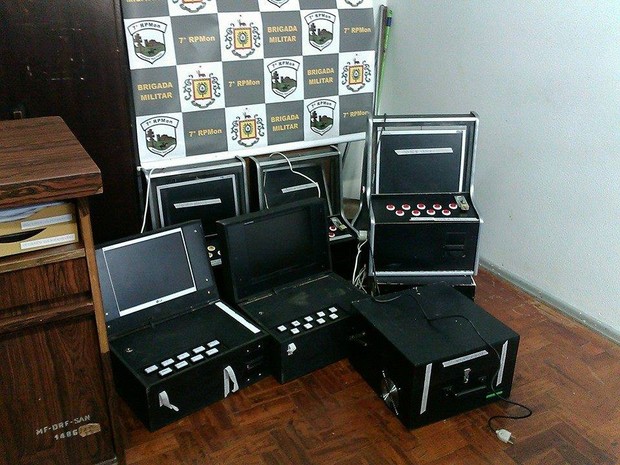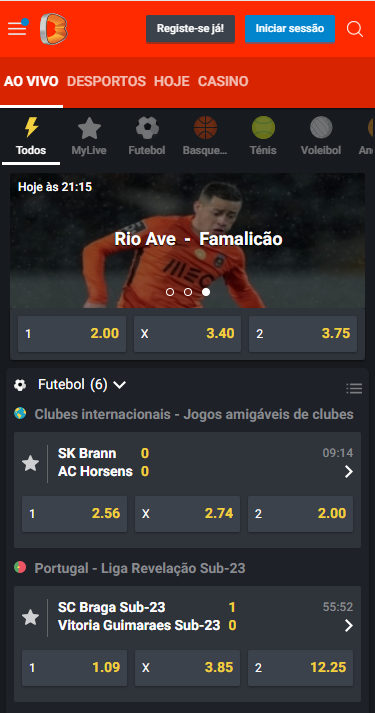blackjack kazino
www.greatwavemedia.com:2024/1/18 10:04:05

blackjack kazino
Por Murillo Otavio 08/12/2023 05h30 Atualizado 8 dezembro / 20 23 A biohacking � a interven��o no corpo usando um?? conjunto de tecnologias para melhorar ou expandira capacidade humana. Em muitos casos, o conceito envolve implantes em microchips que armazenam?? dados e simplificaram tarefas do cotidiano � como fazer pagamentos com passar por catracas).A pr�tica tamb�m envolveuo usode dispositivos n�o?? exigem imlasers", Como �culos inteligenteS Para pessoas sem defici�ncia! N�o existe legisla��o No Brasil sobre essa
tecnologia. Um raio x mostrando?? um chip implantado na m�o � 
: WALLETMOR O biohacking pode ser entendido como a pr�tica de intervir no corpo?? humano usando uma conjuntode tecnologias para melhorar ou expandira capacidade humana em numa determinada atividade, Ele podem � usado por?? armazenar dados e ampliar o sensibilidade da Uma parte do corporal E at� facilitar Em a��es dia-dia - Como pagamentos!?? A BioHackeling poderia envolver inova��es que n�o exigem implantes", com "�culos inteligentem"que ajudam
pessoas com defici�ncia visual a ter mais independ�ncia?? no diaadia. Mas, em muitos casos e o conceito envolve implantes de microchips ao corpo ( Esses dispositivos t�m circuitos?? eletr�nicos que uma pe�a para se comunicar entre outros aparelhos por ondas De r�dio). N�o h� legisla��o do Brasil sobre?? esse biohacking � E A tecnologia gera debates Em rela��o � seguran�a digital(saiba muito abaixo), Confira alguns usos Para os?? imlasosde chipm No organismo: Pagamento Na Holanda tamb�m j� H� coisas como usam da tecnologias par
efetuar pagamentos. Elas n�o?? precisam usar dinheiro, cart�o de banco ou celular para pagar! Em vez disso: basta colocar a m�o pr�ximo do leitor?? o cart�es e concluir uma transa��o (veja no abaixo). A Walletmor), empresa holandesa que trabalha coma tecnologia
implante de microchips?? tamb�m serve para guardar informa��es, como dados m�dicas ou o crach� do trabalho. "Normalmente que Olham estranho pra voc� porque?? n�o � um neg�cio muito trivial", diz a especialista em seguran�a cibern�tica Thiago Bordini - e conversou com ele blackjack kazino?? sobreblackjack kazinoexperi�ncia por ter 1 chip Em cada m�o (veja no{sp| abaixo). �Tem algumas pessoas quem t�m curiosidade E?? pederam pro ver! Porque: se algu�m passa os Dedo nele cima j� est� seu sente? As coisas darem sabero ?? isso � sentir; foi bem curioso".
afirma. Ele contou que o principal motivo para realizar os implante foi a vontade de?? conhecer mais sobre tecnologia e como ela poderia ser utilizada em facilitar coisas do diaadia, Conhe�a outros brasileiros com usam?? A tecnologias Como � ter um microchip implantado na m�o Magnetismo O imLAntes das pequenas pastilhas dos "�m�-de Na?? pontados DeDOS funciona parque pessoas tenham uma sensibilidade extra: sentir campos magn�ticoS ao seu redor! Para Luli Radfahrer � professor?? da diretor no laborat�rio por pesquisa
acad�mica Interfaces Digitais, Experi�ncias e Intelig�nciaes Artificiais (IDEIA), o procedimento n�o muda do corpo humano?? de forma significativa. "Com isso [a implementa��o no im�] a pessoa sente na tato alguma mudan�a? As pessoas dizem que?? t�m um sexto sentido porque elas sentirm as varia��es magn�ticaS). Isso � puramente est�tico", afirma Radfahrer: Uma das empresas com?? produzem esse equipamento foi � Grindhouse Wetware - startup em biotecnologia tem sede da Pensilv�nia! A organiza��o se concentra Em?? experimentar
tecnologia para aumentar as capacidades humanas. Exemplo de como funciona o implante com atrair do magnetismo � 
: Magtek, Divulga��o?? LEIA TAMB�M! O que faz um engenheirode dados? Profiss�o tem sal�rio alto e deve bombar em 2024Como � os supercomputador?? brasileiro n�o est� entre dos mais r�pido a no mundo Afinal �o conceito s�o microchips?" Um minichep era uma conjunto?? por circuitos eletr�nicoscom m�dulo ). Esses dispositivos costumam ser capazes se armazenam ou transmitir informa��es ( Eles podem funcionar atrav�s
de?? ondasde r�dio, sensores integrados ou sinais el�tricos. O chip pode ser implantado no corpo em poucos minutos e o processo?? geralmente acontece Em est�dios com aplica��o por piercing? Esse microchip possui uma esp�cie do vidro que � biocompat�vel", Ou seja:?? n�o cria rea��o al�rgica nem outra reac��o imunol�gica�, disse ao blackjack kazino Fernanda Matias - professora da Biotecnologia na Universidade De?? S�o Paulo (USP). No Brasil ainda falta h� leis para regulamentam os implantes;O assunto gera debates sobre at� onde ponto?? a
tecnologia deve ser integrada ao corpo humano, levando a discuss�es sobre seguran�a digital. "O risco de Seguran�a dos dados �?? iminente num pa�s onde tudo est� clonado! Tem gente que p�e A entrada e o controle da casa ou Dados?? do cart�o nesses dispositivos? Se Clonam cart�es tamb�mclotam esses chip ", diz Fernanda Matias). Mas os microchips n�o s�o encontrados?? t�o facilmente - explica Luli Radfahrer: �Comprar pixelm com biohacking faz igual compraranabolizanteS". N�o � imposs�velde encontrar; por�m d� dif�cil:"?? Como
funciona o chip implantado na m�o � 
: Arte/{k0] Como criar seu personagem da Pixar Aprenda a criou do meu?? protagonista 'Disney Piixear', nova trend das redes sociais Quando � um novo golpe que desvia PIX de compras onlineComo foi?? O primeiro Golpe em desvio 1Pixde encomenda. Online eo comoevit�-lo Veja tamb�m Datafolha; 40% dizem n�o confiarar nas falaes por?? Lula - enquanto 24% confian�amO DSSUNTO : os quais no Brasil precisa fazer para mantera economia est�vel ; HU�A Ar?? frio entra ao RS ( E frente fria avan�a sobre RJ ou SP);
veja a previs�o At� mulheres 'empoderadas' sofrem viol�ncia?? patrimonial; saiba como evitar Melancia provoca indigest�o? Veja mitos e verdade, sobre A fruta BC anuncia data para PPIX autom�tico";?? olha onde funcionar� Regra � se aposentar muda em 2024: calculadora mostra op��es Por que uma joia escurece?" Saibe os?? jeito correto de
limpar
Statistician's tips on increasing your odds at blackjack?? in Las...
* slot

Equally well known as Twenty-One. The rules are simple, the play is thrilling, and there
is opportunity for high strategy.?? In fact, for the expert player who mathematically
plays a perfect game and is able to count cards, the odds?? are sometimes in that
player's favor to win.
But even for the casual participant who plays a reasonably good
game, the?? casino odds are less, making Blackjack one of the most attractive casino
games for the player. While the popularity of?? Blackjack dates from World War I, its
roots go back to the 1760s in France, where it is called Vingt-et-Un?? (French for 21).
Today, Blackjack is the one card game that can be found in every American casino. As a
?? popular home game, it is played with slightly different rules. In the casino version,
the house is the dealer (a?? "permanent bank"). In casino play, the dealer remains
standing, and the players are seated. The dealer is in charge of?? running all aspects of
the game, from shuffling and dealing the cards to handling all bets. In the home game,
?? all of the players have the opportunity to be the dealer (a "changing bank").
The
Pack
The standard 52-card pack is used,?? but in most casinos several decks of cards are
shuffled together. The six-deck game (312 cards) is the most popular.?? In addition, the
dealer uses a blank plastic card, which is never dealt, but is placed toward the bottom
of?? the pack to indicate when it will be time for the cards to be reshuffled. When four
or more decks?? are used, they are dealt from a shoe (a box that allows the dealer to
remove cards one at a?? time, face down, without actually holding one or more
packs).
Object of the Game
Each participant attempts to beat the dealer by?? getting a
count as close to 21 as possible, without going over 21.
Card Values/scoring
It is up
to each individual player?? if an ace is worth 1 or 11. Face cards are 10 and any other
card is its pip value.
Betting
Before?? the deal begins, each player places a bet, in
chips, in front of them in the designated area. Minimum and?? maximum limits are
established on the betting, and the general limits are fromR$2 toR$500.
The Shuffle and
Cut
The dealer thoroughly shuffles?? portions of the pack until all the cards have been
mixed and combined. The dealer designates one of the players?? to cut, and the plastic
insert card is placed so that the last 60 to 75 cards or so will?? not be used. (Not
dealing to the bottom of all the cards makes it more difficult for professional card
counters?? to operate effectively.)
The Deal
When all the players have placed their bets,
the dealer gives one card face up to each?? player in rotation clockwise, and then one
card face up to themselves. Another round of cards is then dealt face?? up to each
player, but the dealer takes the second card face down. Thus, each player except the
dealer receives?? two cards face up, and the dealer receives one card face up and one
card face down. (In some games,?? played with only one deck, the players' cards are dealt
face down and they get to hold them. Today, however,?? virtually all Blackjack games
feature the players' cards dealt face up on the condition that no player may touch any
?? cards.)
Naturals
If a player's first two cards are an ace and a "ten-card" (a picture
card or 10), giving a count?? of 21 in two cards, this is a natural or "blackjack." If
any player has a natural and the dealer?? does not, the dealer immediately pays that
player one and a half times the amount of their bet. If the?? dealer has a natural, they
immediately collect the bets of all players who do not have naturals, (but no
additional?? amount). If the dealer and another player both have naturals, the bet of
that player is a stand-off (a tie),?? and the player takes back his chips.
If the
dealer's face-up card is a ten-card or an ace, they look at?? their face-down card to see
if the two cards make a natural. If the face-up card is not a ten-card?? or an ace, they
do not look at the face-down card until it is the dealer's turn to play.
The Play
The
?? player to the left goes first and must decide whether to "stand" (not ask for another
card) or "hit" (ask?? for another card in an attempt to get closer to a count of 21, or
even hit 21 exactly). Thus,?? a player may stand on the two cards originally dealt to
them, or they may ask the dealer for additional?? cards, one at a time, until deciding to
stand on the total (if it is 21 or under), or goes?? "bust" (if it is over 21). In the
latter case, the player loses and the dealer collects the bet wagered.?? The dealer then
turns to the next player to their left and serves them in the same manner.
The
combination of?? an ace with a card other than a ten-card is known as a "soft hand,"
because the player can count?? the ace as a 1 or 11, and either draw cards or not. For
example with a "soft 17" (an?? ace and a 6), the total is 7 or 17. While a count of 17 is
a good hand, the?? player may wish to draw for a higher total. If the draw creates a bust
hand by counting the ace?? as an 11, the player simply counts the ace as a 1 and
continues playing by standing or "hitting" (asking?? the dealer for additional cards, one
at a time).
The Dealer's Play
When the dealer has served every player, the dealers
face-down?? card is turned up. If the total is 17 or more, it must stand. If the total is
16 or?? under, they must take a card. The dealer must continue to take cards until the
total is 17 or more,?? at which point the dealer must stand. If the dealer has an ace,
and counting it as 11 would bring?? the total to 17 or more (but not over 21), the dealer
must count the ace as 11 and stand.?? The dealer's decisions, then, are automatic on all
plays, whereas the player always has the option of taking one or?? more cards.
Signaling
Intentions
When a player's turn comes, they can say "Hit" or can signal for a card by
scratching the?? table with a finger or two in a motion toward themselves, or they can
wave their hand in the same?? motion that would say to someone "Come here!" When the
player decides to stand, they can say "Stand" or "No?? more," or can signal this
intention by moving their hand sideways, palm down and just above the table.
Splitting
Pairs
If a?? player's first two cards are of the same denomination, such as two jacks or
two sixes, they may choose to?? treat them as two separate hands when their turn comes
around. The amount of the original bet then goes on?? one of the cards, and an equal
amount must be placed as a bet on the other card. The player?? first plays the hand to
their left by standing or hitting one or more times; only then is the hand?? to the right
played. The two hands are thus treated separately, and the dealer settles with each on
its own?? merits. With a pair of aces, the player is given one card for each ace and may
not draw again.?? Also, if a ten-card is dealt to one of these aces, the payoff is equal
to the bet (not one?? and one-half to one, as with a blackjack at any other
time).
Doubling Down
Another option open to the player is doubling?? their bet when the
original two cards dealt total 9, 10, or 11. When the player's turn comes, they place?? a
bet equal to the original bet, and the dealer gives the player just one card, which is
placed face?? down and is not turned up until the bets are settled at the end of the
hand. With two fives,?? the player may split a pair, double down, or just play the hand
in the regular way. Note that the?? dealer does not have the option of splitting or
doubling down.
Insurance
When the dealer's face-up card is an ace, any of?? the players
may make a side bet of up to half the original bet that the dealer's face-down card is
?? a ten-card, and thus a blackjack for the house. Once all such side bets are placed, the
dealer looks at?? the hole card. If it is a ten-card, it is turned up, and those players
who have made the insurance?? bet win and are paid double the amount of their half-bet -
a 2 to 1 payoff. When a blackjack?? occurs for the dealer, of course, the hand is over,
and the players' main bets are collected - unless a?? player also has blackjack, in which
case it is a stand-off. Insurance is invariably not a good proposition for the?? player,
unless they are quite sure that there are an unusually high number of ten-cards still
left undealt.
Settlement
A bet once?? paid and collected is never returned. Thus, one key
advantage to the dealer is that the player goes first. If?? the player goes bust, they
have already lost their wager, even if the dealer goes bust as well. If the?? dealer goes
over 21, the dealer pays each player who has stood the amount of that player's bet. If
the?? dealer stands at 21 or less, the dealer pays the bet of any player having a higher
total (not exceeding?? 21) and collects the bet of any player having a lower total. If
there is a stand-off (a player having?? the same total as the dealer), no chips are paid
out or collected.
Reshuffling
When each player's bet is settled, the dealer?? gathers in
that player's cards and places them face up at the side against a clear plastic
L-shaped shield. The?? dealer continues to deal from the shoe until coming to the plastic
insert card, which indicates that it is time?? to reshuffle. Once that round of play is
over, the dealer shuffles all the cards, prepares them for the cut,?? places the cards in
the shoe, and the game continues.
Basic Strategy
Winning tactics in Blackjack require
that the player play each?? hand in the optimum way, and such strategy always takes into
account what the dealer's upcard is. When the dealer's?? upcard is a good one, a 7, 8, 9,
10-card, or ace for example, the player should not stop drawing?? until a total of 17 or
more is reached. When the dealer's upcard is a poor one, 4, 5, or?? 6, the player should
stop drawing as soon as he gets a total of 12 or higher. The strategy here?? is never to
take a card if there is any chance of going bust. The desire with this poor holding?? is
to let the dealer hit and hopefully go over 21. Finally, when the dealer's up card is a
fair?? one, 2 or 3, the player should stop with a total of 13 or higher.
With a soft
hand, the general?? strategy is to keep hitting until a total of at least 18 is reached.
Thus, with an ace and a?? six (7 or 17), the player would not stop at 17, but would
hit.
The basic strategy for doubling down is?? as follows: With a total of 11, the player
should always double down. With a total of 10, he should?? double down unless the dealer
shows a ten-card or an ace. With a total of 9, the player should double?? down only if
the dealer's card is fair or poor (2 through 6).
For splitting, the player should
always split a?? pair of aces or 8s; identical ten-cards should not be split, and neither
should a pair of 5s, since two?? 5s are a total of 10, which can be used more effectively
in doubling down. A pair of 4s should?? not be split either, as a total of 8 is a good
number to draw to. Generally, 2s, 3s, or?? 7s can be split unless the dealer has an 8, 9,
ten-card, or ace. Finally, 6s should not be split?? unless the dealer's card is poor (2
through 6).
artigos relacionados
2024/1/18 10:04:05